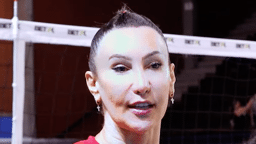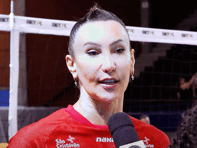By Cyd Zeigler
 |
The NCAA has clarified conflicting statements made in the last two weeks concerning the ability for transgender athletes to undergo gender-reassignment surgery and keep their NCAA eligibility. NCAA spokesperson Erik Christianson relayed the clarification in an email to Outsports Monday afternoon:
"As discussions continue and after further review of this topic at the national office, generally speaking a female who wants to be socially identified as a male but has not undergone hormonal treatment may compete on a women’s team, and the team remains a women’s team. A male who wants to be socially identified as a female but has not undergone hormonal suppression may compete on a women’s team, but the team becomes a mixed team for competitive equity reasons."
In reaction go the coming-out of George Washington University women’s basketball player Kye Allums, who is transgender, NCAA spokesperson Jennifer Royer had told Outsports that eligibility is undermined by hormone treatment; Gender-reassignment surgery at this time is not considered a deal-breaker. However, questions arose last week when Christianson released this statement seemingly contradicting Royer’s previous position:
“A female who wants to be socially identified as a male but has not had hormone treatments or surgery may compete on a women's team, and the team remains a women's team.”
Christianson said the NCAA does not have a specific policy on transgender eligibility, though they are working to develop one. In October, the National Center for Lesbian Rights worked with various organizations, including the NCAA, to develop a report titled, “On The Team: Equal Opportunity for Transgender Student Athletes.” That report strongly recommends that surgery not be a factor in determining eligibility.
“There is an ongoing review within the NCAA governance structure to develop educational resources and eventually policies regarding transgender student-athlete participation in college sports,” Christianson said. “One consideration is that the determination for transgender student-athlete participation would not rely on or require surgery.”
George Washington University spokesperson Candace Smith said the school has worked with the NCAA on the issue and informed Kye he could have gender-reassignment surgery and keep his NCAA eligibility.
Core to the NCAA’s general perspective on transgender eligibility is the use of testosterone. While the NCAA does not have a specific policy on gender-reassignment surgery, it has a very clear policy on supplements and testosterone is at the top of the NCAA’s list of banned substances. The hormone is also instrumental in the transition of many female-to-male transgender people; Many other people transition without testosterone.
Since Allums came out on Outsports as the first transgender Div. 1 basketball player, many have assumed that transgender people may not take testosterone and participate in NCAA athletics on a woman’s team. However, the NCAA’s policy on the substance does leave the door open for some athletes to receive hormone treatment.
“Existing NCAA policy on banned substances requires student-athletes to receive a waiver to be treated with testosterone,” Christianson said.
Whether an athlete would receive that waiver for testosterone to complete their gender transition remains unclear.
Allums told Outsports several times that he would have gender-reassignment surgery in the summer of 2011. However, last week he said he would wait until after his NCAA-playing days are over in April 2012. He has maintained from the start that he would wait until after college to receive any hormone treatments.







































